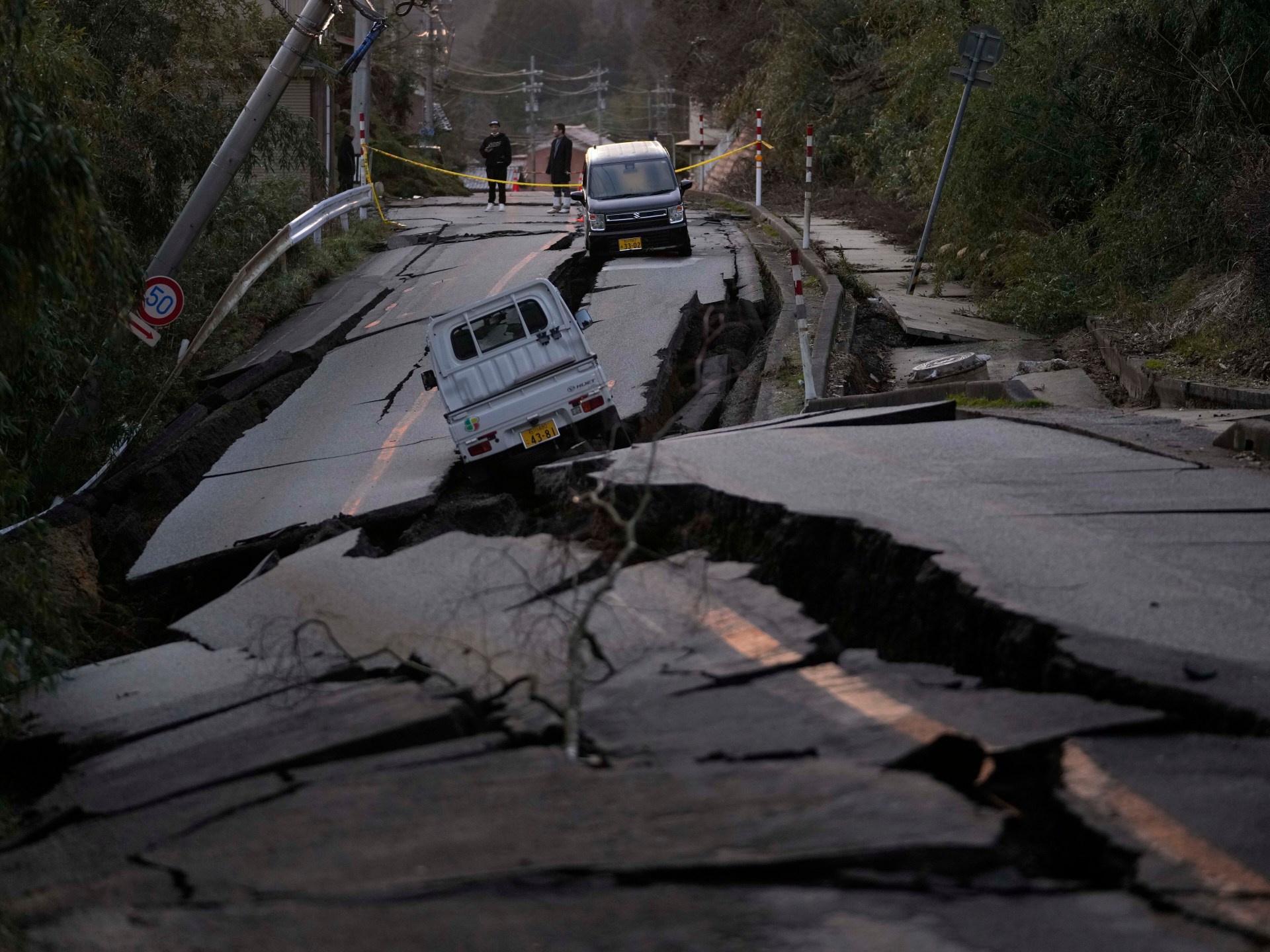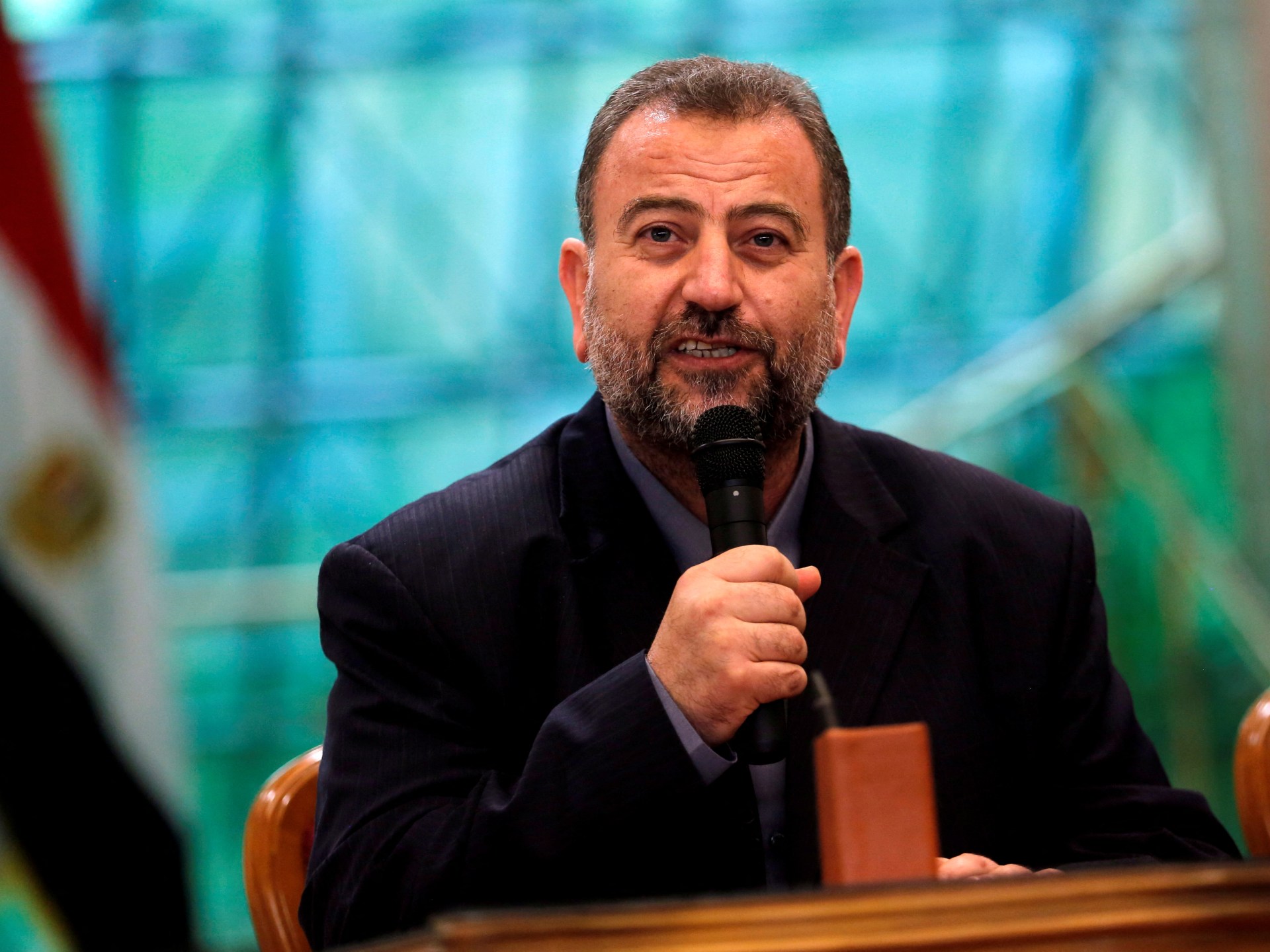Some Gaza residents who began evacuating northern Gaza two days ago, following an Israeli military order, have been returning to their homes in Gaza City due to continued Israeli air raids and unbearable living conditions in the south and central areas of the Gaza Strip.
Maha Hosseini, speaking to Al Jazeera from Zawayda in the central Strip, where she evacuated, said three families who were sharing the home she is staying in have now returned to Gaza City.
“I’m staying in a house with 70 other people,” she said, using the little charge she had left on her phone after a day with no connection to the outside world.
“We have limited water supply, we don’t have electricity, just one hour a day,” she explained.
“Actually this is our greatest fear, that we run out of water. When children ask for water, we just give each of them one sip,” she said, adding that they are trying to make the one water tank they have last for as long as possible, as they don’t know if another will be available.
“We have three families that went back home today because even in this area that Israel had deemed safe, we’ve had many air raids around the house,” Hosseini said.
In the early hours of Friday morning, the Israeli military ordered more than a million people to evacuate the north of the Gaza Strip, including the densely populated Gaza City. The directive applies to almost half of Gaza’s 2.3 million residents.
Later that day, thousands of people made their way to southern Gaza in cars, trucks, and even donkey-pulled carts filled with whatever belongings they could take with them.
But in the south, people found little safety and reported being crammed into the homes of family, friends and even strangers who had opened their doors to the evacuees.
‘Without a roof over their heads’
“The most pressing issues are lack of food, [as] the markets are either closed or they do not get replenished with supplies because the demand is very much high [for] water, [for] food,” Hisham Mhanna, a media and communications officer for the International Committee of the Red Cross in Gaza, told Al Jazeera from the south of the besieged enclave.
“There is absolutely no access to fuel in some areas,” he said. “Some people do not have any way to relocate or evacuate from their homes. I saw with my bare eyes families, women, children, elderly people walking tens of kilometres trying to reach the safe area as was instructed.
“Many families now are staying in the street, without a roof over their heads, without access to any water, no bathroom, no blankets, no mattresses, no hygiene kits. They are staying in the middle of nowhere, without access to information about what’s going to happen and what they should do in case the situation gets worse.”
Aid agencies had warned that such a large-scale movement of people would be impossible without triggering a humanitarian catastrophe.
“People are desperate and emotionally and physically drained,” Amal, who asked that we change her name for safety reasons, told Al Jazeera from Deir al-Balah, where she had fled with her family from Gaza City.
She added that several families had found conditions in Deir al-Balah “unsanitary, no place to sleep, no electricity and no water: not a life”, prompting them to return home.
Al Jazeera’s Youmna ElSayed, reporting from Khan Younis in southern Gaza where she also evacuated with her family, confirmed that “the bombardment hasn’t stopped” and that supplies of water and other essentials were running low in the stores.
Israel has been pounding the Gaza Strip for more than seven days, in retaliation for an attack by Hamas, the Palestinian group that has been ruling the territory since 2007. The group’s incursion on October 7 and the fighting that ensued killed at least 1,300 people in Israel, while 2,329 Palestinians have been killed and 9,700 injured by Israeli air strikes on Gaza since then.
Some residents of Gaza City did not evacuate, saying they had nowhere safe to go or were unable to safely make their way to the south. Others were killed in air raids while trying to flee.
The United Nations estimates that one million people have been displaced in Gaza since the war began.
The World Health Organization (WHO) has strongly condemned Israeli orders to evacuate as many as 22 hospitals in northern Gaza.
“Forcing more than 2,000 patients to relocate to southern Gaza, where health facilities are already running at maximum capacity and unable to absorb a dramatic rise in the number [of] patients, could be tantamount to a death sentence,” a WHO statement read.
“Nobody wants to leave their homes,” Amal said. “They left out of fear of what was to come, and also out of hope that the fighting would end.”

 Movie
Movie 6 months ago
146
6 months ago
146 






![Presidents Day Weekend Car Sales [2021 Edition] Presidents Day Weekend Car Sales [2021 Edition]](https://www.findthebestcarprice.com/wp-content/uploads/Presidents-Day-Weekend-car-sales.jpg)



 English (United States)
English (United States)